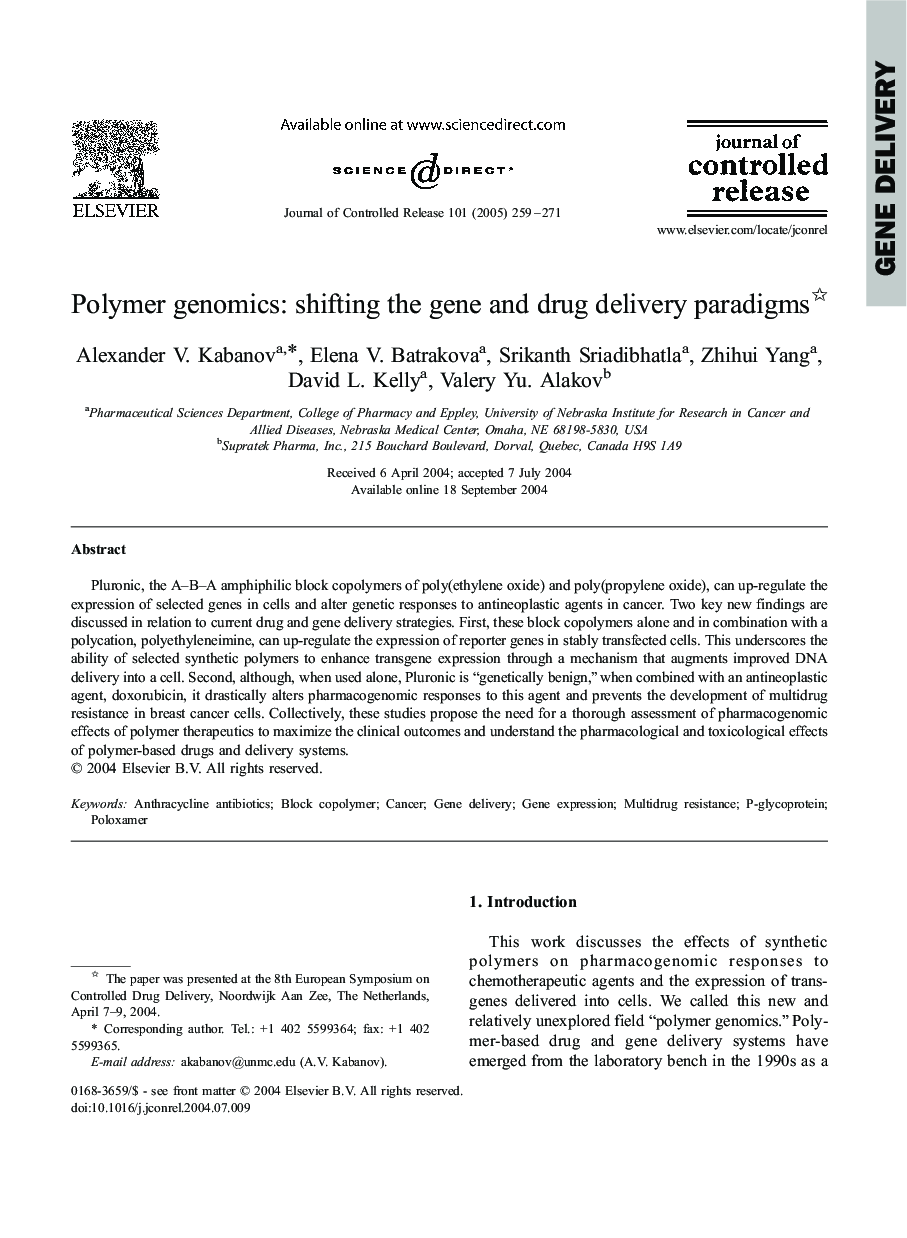| Article ID | Journal | Published Year | Pages | File Type |
|---|---|---|---|---|
| 9774711 | Journal of Controlled Release | 2005 | 13 Pages |
Abstract
Pluronic, the A-B-A amphiphilic block copolymers of poly(ethylene oxide) and poly(propylene oxide), can up-regulate the expression of selected genes in cells and alter genetic responses to antineoplastic agents in cancer. Two key new findings are discussed in relation to current drug and gene delivery strategies. First, these block copolymers alone and in combination with a polycation, polyethyleneimine, can up-regulate the expression of reporter genes in stably transfected cells. This underscores the ability of selected synthetic polymers to enhance transgene expression through a mechanism that augments improved DNA delivery into a cell. Second, although, when used alone, Pluronic is “genetically benign,” when combined with an antineoplastic agent, doxorubicin, it drastically alters pharmacogenomic responses to this agent and prevents the development of multidrug resistance in breast cancer cells. Collectively, these studies propose the need for a thorough assessment of pharmacogenomic effects of polymer therapeutics to maximize the clinical outcomes and understand the pharmacological and toxicological effects of polymer-based drugs and delivery systems.
Keywords
Related Topics
Physical Sciences and Engineering
Materials Science
Biomaterials
Authors
Alexander V. Kabanov, Elena V. Batrakova, Srikanth Sriadibhatla, Zhihui Yang, David L. Kelly, Valery Yu. Alakov,
